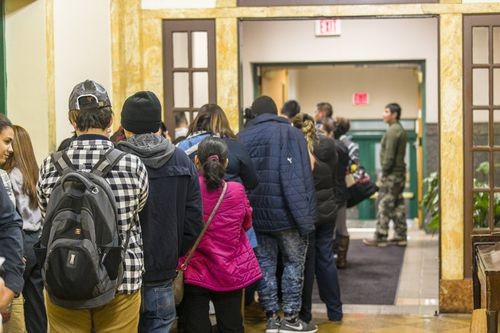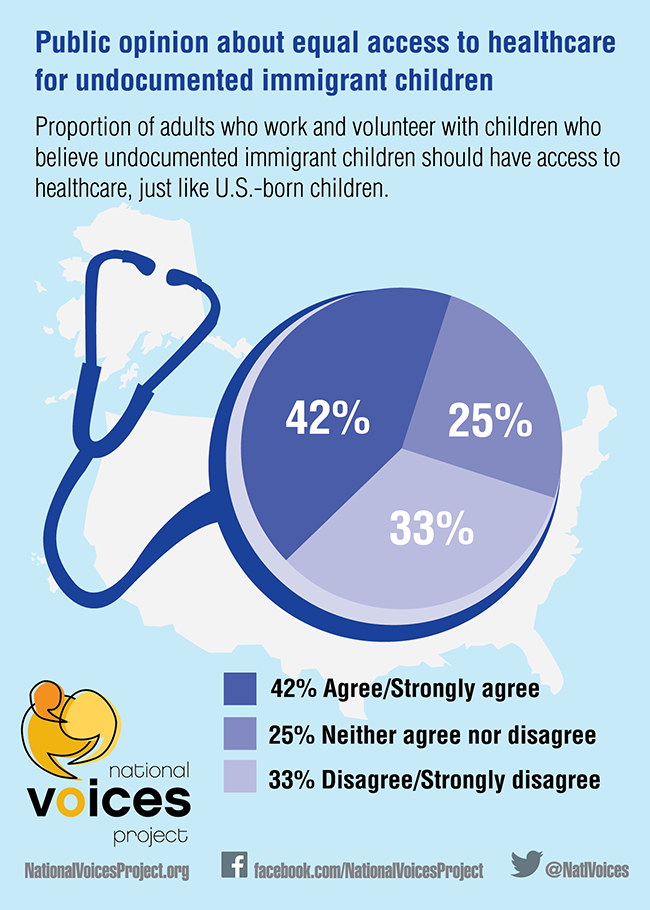Health Care Reform and Equity for Undocumented Immigrants
- 10 Mar, 2023
- 3238 views
Reliable and equitable access to effective treatment for cancer and other serious medical conditions remains elusive in the United States. Although the Inflation Reduction Act is poised to lower prescription-drug prices for Medicare beneficiaries, basic, high-value medical care is still largely inaccessible to undocumented immigrants, who are categorically excluded from major forms of federal health insurance coverage under the Affordable Care Act.

As the United States faces the daunting task of economic recovery on the heels of a pandemic, and amidst high inflation rates, the dual challenges of health care reform and immigration reform are once again at the forefront of national policy debates. Over the past year, a record 2.4 million encounters have been reported at the U.S.–Mexico border, and at least 1 million people have been awaiting asylum since 2020. Recent state-of-emergency declarations in Illinois and New York City highlight the inability of public systems to accommodate the needs of a rapidly growing immigrant population.
As U.S. officials contend with this impending humanitarian crisis, they must also consider its implications for domestic policy — including the potential need for expansion of the public health insurance system to narrow gaps in health care.
Of the 20.8 million noncitizens living in the United States in 2021, approximately 25% of nonelderly lawfully present residents and 46% of nonelderly undocumented immigrants were uninsured.1 With the exception of refugees and asylees — who are eligible for Medicaid or other forms of public insurance coverage on arrival in the United States — immigrants who are “qualified noncitizens” can receive Medicaid coverage after 5 years of continuous U.S. residence, provided their income makes them otherwise eligible. During this 5-year waiting period, qualified noncitizens are permitted to purchase coverage through insurance marketplaces. Undocumented immigrants, however, are indefinitely ineligible for Medicaid and marketplace plans, which leaves those without employer-based private insurance limited options for obtaining access to essential care.
Charitable organizations provide funding for some forms of health care for uninsured people, and federally qualified health centers (FQHCs) traditionally provide urgent and preventive care to all people, including those who are undocumented or uninsured. FQHC policies are inconsistent across states, however: according to an analysis of 69 FQHCs in Texas, only 1 provided primary care to undocumented immigrants.2 Moreover, FQHCs are unequipped to offer specialty care and therefore cannot comprehensively address all health care needs of undocumented immigrants — particularly those who require higher levels of care. As a chronic medical condition that necessitates both intensive treatment and durable health care access after treatment, cancer can help illustrate the ways in which the diagnosis and management of complex diseases have been largely neglected among undocumented immigrants.
Immigrant Populations and Emergency Medicaid Coverage in New York and Texas.
Under the Emergency Medical Treatment and Labor Act (EMTALA), patients seen in an emergency department must be stabilized, regardless of their ability to pay for care. As an unfunded mandate, EMTALA doesn’t provide reimbursement for care under federal law. Instead, Emergency Medicaid — a federally funded, state-run health program — covers emergency-only services for people who would otherwise be eligible for Medicaid, if it weren’t for their immigration status. Since the program is implemented by states, however, the services that are covered vary widely. Generally, emergency medical conditions are considered those that have the potential to seriously jeopardize health or impair bodily function. In states such as New York and California, Emergency Medicaid offers physicians substantial latitude in determining what constitutes an emergency and which interventions are necessary for stabilization. For patients with cancer, Emergency Medicaid can cover life-saving measures (e.g., chemotherapy, radiation, and surgery) and may cover ongoing outpatient care. Conversely, states such as Texas and Florida have relatively narrow Emergency Medicaid coverage allowances, limiting emergency care to inpatient stabilization only (see table).
As a consequence of this patchwork of policies, undocumented immigrants with serious illnesses must often wait until their condition becomes clinically unstable before seeking essential care. Such care delays come at great cost for patients, physicians, and the U.S. health care system at large. Emergency dialysis, for example, is substantially more expensive than scheduled dialysis, and physicians who are limited to providing emergency-only care often experience moral distress and burnout.3 In the context of a chronic disease like cancer, inequities created by inconsistent Emergency Medicaid policies may not only increase financial strain but also worsen clinical outcomes. Although the exact burden of cancer in the undocumented population is unknown, immigrants have been found to present at later stages of disease more often than nonimmigrants, partly owing to inadequate screening and access to primary care. Immigrants also have high rates of financial hardship, which places them at greater risk for food insecurity and housing instability — both of which have been associated with decreased odds of treatment completion and higher cancer-specific mortality.
Recognizing the need to expand coverage for immigrant populations, some states have waived traditional Medicaid requirements. Eight states and the District of Columbia have extended coverage to undocumented children using state-only funds. In May 2022, California expanded Medicaid coverage to all income-eligible residents 50 years of age or older; expansion to people between 26 and 49 years of age (an estimated 700,000 additional undocumented Californians) will be implemented in January 2024. Until then, a recent policy guarantees continuous coverage for the 40,000 beneficiaries who are approaching or have passed the limit on young-adult coverage at 25 years of age. In implementing these policies, California will become the first state to offer low-income residents free or low-cost health care, regardless of immigration status. New York may soon take a similar step: in April 2022, Governor Kathy Hochul announced plans to expand Medicaid eligibility to allow all income-eligible people 65 years of age or older, including those who are undocumented, to apply for full-benefit Medicaid beginning in 2023.
If access to health care is not just a privilege, but a fundamental human right — as we and the World Health Organization consider it to be — we believe that a similar federal program should extend Medicaid eligibility to all low-income U.S. residents, regardless of immigration status. Beyond this foundational moral argument, there’s also an economic case for supporting immigrants. Critics who oppose lifting public health insurance restrictions on the basis of immigration status argue that undocumented immigrants already place an undue burden on public benefits and that policies expanding insurance access would exacerbate economic strain. Immigrants make essential contributions to the U.S. economy, however: with fewer long-standing familial and community ties, immigrants are more mobile than native citizens in response to local economic conditions, thereby helping labor markets function more efficiently.
The health care expenditures of noncitizens are consistently lower than those of naturalized or native citizens.4 Moreover, the majority of undocumented immigrants pay state and federal taxes — thereby supporting the very health care programs for which they are ineligible, while simultaneously covering much of their own health care costs. In 2017, immigrants were estimated to have paid $58.3 billion more in premiums and taxes that fund health care than public or private insurers paid for their health care, with undocumented immigrants accounting for 89% of this surplus.5
In the face of these inequities, an expanded public health insurance system that grants comprehensive health care coverage to undocumented immigrants — for acute and chronic conditions — would represent an opportunity to improve health and economic efficiency. Earlier cancer detection and treatment is associated with significant gains in quality-adjusted life-years, and interventions promoting screening have been shown to be cost-effective. As part of renewed efforts to cut the cancer-related death rate in half over the next 25 years, the Cancer Moonshot initiative has obtained both private- and public-sector commitments to support screening initiatives, including a mobile lung-cancer screening program focused on underserved areas with higher-than-average tobacco use.
Though commendable, these initiatives remain insufficient in the absence of meaningful policy efforts to address coverage gaps caused by this fractured network of state policies. Without federal intervention, many undocumented immigrants with life-threatening illnesses will remain undiagnosed and untreated. Ultimately, the answer to reducing mortality from cancer and other serious illnesses in underserved populations lies not in the next “Moonshot” cure, but in improving access to basic, “on-the-ground” care.
By
Patricia Mae G. and others.
Edited by Idemudia Franca
Clevenard blogs.
- Category:
- Health
- No comments



